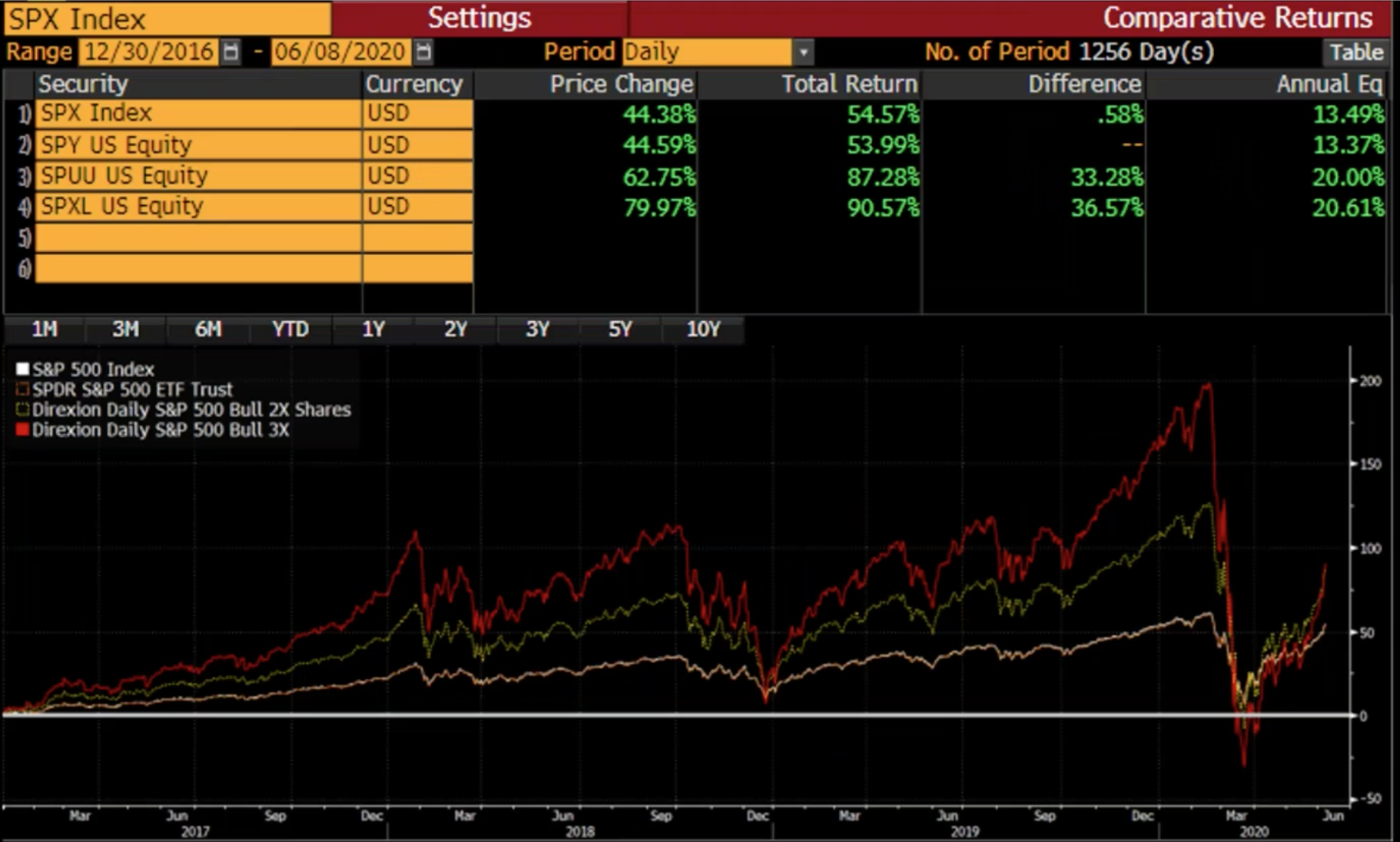Jun 12, 2020
Eligibility hurdles for businesses applying to CEBA: Ask BNN Bloomberg
, BNN Bloomberg

With growing economic uncertainty during the COVID-19 pandemic, the financial landscape is shifting every day.
Whether it's dealing with sudden unemployment, ballooning debt, or expenses related to working from home, BNN Bloomberg wants to help Canadians navigate these uncharted waters.
That’s why we created Ask BNN Bloomberg, where you can have your personal finance questions answered by industry professionals.
Email or send your questions via video to askbnnbloomberg@bellmedia.ca, and we will aim to answer them weekly.
Questions and answers have been edited for clarity. Last names will not be used.
Eligibility hurdles for CEBA
Emil in Westmount, Que.:
I have been operating my business for over 35 years, I have four employees and a payroll account with Canada Revenue Agency (CRA). My bank says I am not eligible for the Canadian Emergency Business Account (CEBA) because of the type of account I have with them.
As a professional and sole proprietor, my operating account is a checking account under my own name. This is what I opened when I first walked into the bank in 1985 and has been functioning since then. I use the account strictly for my business, as all my deposits and credit card payments go through this account as well as all the checks I write for rent, salaries and other expenses.
The bank has categorically stated that I need a business account with them and my account does not qualify.
Is there any way to remedy the situation? My bank manager and small business manager all say that I do not qualify. (June 4, 2020)
Dilys D'Cruz, VP and head of wealth management at Meridian Credit Union:
Based on the fact that you’ve had a successful dentistry practice over the last 35 years, it sounds like you meet the criteria for the CEBA.
However, you need a business operating account and you’re currently running your banking through a personal account. So unfortunately, your bank is correct that you don’t meet the criteria for the CEBA.
Having said that, I recommend that you go back to the bank and ask them to reconsider, given your long-term relationship with them and given you’ve been operating the account in the spirit of a business account.
At Meridian we’ve had a very similar situation where we did decide to make an exception based on the relationship and how the account was being run.
I would suggest that you consider setting up a business account now. Although it’s not going to help you with the CEBA, it will help prevent similar situations like this from happening in the future and will be the right account for your business that you need. I hope this helps and I wish you good luck. (June 9, 2020)
Navigating the qualifications for CERB
Louise in Kitchener, Ont.:
My situation is unusual and may have fallen through the cracks.
In 2018, I was packaged out by my employer and received all of my money in 2018. Due to the size of the package my Employment Insurance (EI) claim was open, but I only started to receive EI benefits in January 2020. I was entitled to 23 weeks, but after 15 weeks my claim was closed on May 16, 2020
So I did not have any employment earnings in 2019 – even though the package I received in 2018 covered me until January of 2020. Does this qualify as earnings from 2018?
In 2020 I received more than $5,000 of EI payments, does this money count as earnings over $5,000 in the last 12 months to quality for Canadian Emergency Response Benefit (CERB)?
I called the CERB office and was told that I did qualify based on my EI earnings, but really the person I spoke with didn’t seem overly-confident.
I did apply and have received my first CERB amount. I am wondering if I will have to return it, or am I legitimately entitled to this? Thanks for your help. (June 3, 2020)
Kelley Keehn, consumer advocate at FP Canada:
I’m afraid in your situation you may not qualify for the CERB based on the information that you provided. But I weighed in for a second opinion with Jason Heath, certified financial planner, and he agrees that you meet some of the criteria: you didn’t voluntarily quit your job, you’re over the age of 15 and a resident of Canada. However, because that severance is not being reported on your 2019 or 2020 income tax returns, you’re not meeting that minimum $5,000-requirement before taxes.
Now, your situation is very unique so we both suggest that you speak with the Canadian Revenue Agency (CRA). Contact them and if you don’t feel you’ve got a confident answer from the person you’re talking to, call back maybe once or twice.
Either way, make sure you’re taking copious notes, and write down the person’s name and ID that you were speaking with. There’s actually a dedicated line with CRA for CERB questions and that number is 1-833-966-2099. (June 10, 2020)
- Sign up for BNN Bloomberg's new weekly newsletter, Home Economics, here: https://www.bnnbloomberg.ca/subscribe
Investing in triple-leveraged ETFs
Bruce in Vancouver:
Aside from the inherent risks of day trading, is there anything risky from a legal or tax perspective about leveraged ETFs, specifically inside an RRSP or TFSA? I've been able to make quite a bit of money in a short time from a triple -leveraged ETF and somehow it feels too good to be true. Am I at risk for unexpected consequences? (June 6, 2020)
Larry Berman, chief investment officer of ETF Capital Management and host of BNN Bloomberg's Berman's Call:
Legal and tax aren’t my thing, but here’s what I can tell you about using triple-leveraged ETFs. It’s all about the path of returns. There are several hidden risks.
OILU is the ProShares 3X Bull WTI Oil ETF that was liquidated on March 27 because in a single day, the underlying asset fell more than 34 per cent. So if you can think about it, if you have a three times leveraged play and you fall more than one-third, you’re out of business.
So that’s one big risk, but it’s all about the path of returns and how these ETFs rebalance. Basically, you’re buying high and selling low every day, so the higher the volatility in the underlying asset, the more risk you have.

In the very, very long run, what you can see in this example is that in the case of the S&P 500 and a single exposure to the index, you’re going to get pretty equal tracking. In a two times bull and a three times bull, what you can see here in the table is that the three times bull, for all the extra risk you took, didn’t add any more extra return – or not a meaningful amount – and that’s because of the rebalancing impact.
But in the short-run, for day traders, sometimes when you get a strong trending market like we’ve had recently, you can actually get more than two and three times.
So these products are great for short-term trading, not long-term investing.
To have your personal finance question answered an industry professional, send an email to askbnnbloomberg@bellmedia.ca.







